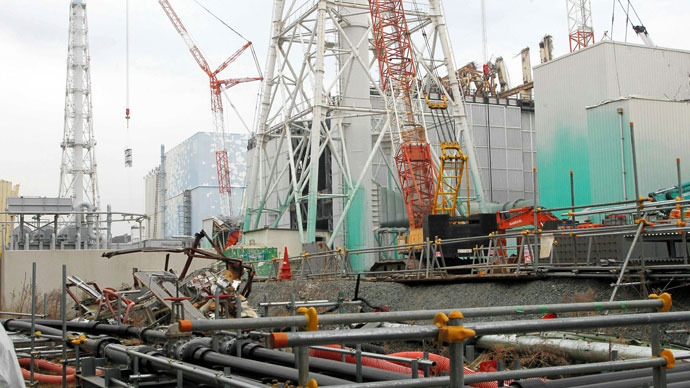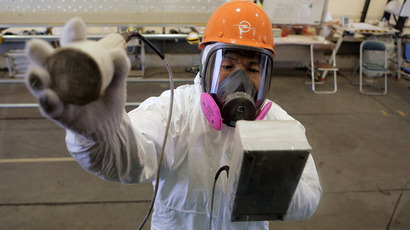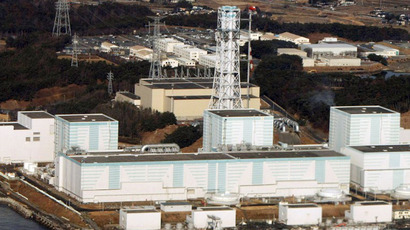Japan’s Fukushima nuclear plant leaks contaminated water

As many as 120 tons of contaminated water have seeped into the surrounding ground from a compromised tank at Japan’s stricken Fukushima Daiichi nuclear power plant.
Though the contaminated water is not expected to reach the sea,
as it is located 800 meters inland, Saturday’s incident is yet
another reminder to Japan that it will still take decades to fully
decommission the facility.
A total of seven water storage tanks were excavated at Fukushima
following a massive 9.0 earthquake in 2011, which triggered a
tsunami that crippled the plant’s ability to cool its fuel rods. At
the time, an all-out effort was made by TEPCO to flood the plant’s
reactors with seawater to cool them, though that did not prevent
three of the reactors from melting down. Hydrogen reactions also
badly damaged the reactors’ housing structures.
This latest incident comes on the heels of failures in the cooling
system - only two weeks ago a massive power outage caused the
plant’s cooling system to fail for 29 hours. The incident was later
attributed to a small animal that had entered an electrical
switchboard. In addition, TEPCO conceded that on Friday they had
lost the ability to cool the rods at one of the
reactors for some three hours following a technical glitch.
Officials with the power company recently admitted that, although
it has excavated seven holding tanks, it has struggled to contain
groundwater from flooding into the plant’s damaged reactors, and it
may take up to four years to correct that issue.
TEPCO is as of yet uncertain what caused one of its seven tanks to
leak, though it plans to pump the remaining 13,000 cubic meters of
water into other tanks within the next two weeks.
Japan’s government believes a full cleanup of the Fukushima site
will take some 40 years, and the cleanup of contaminated areas will
cost at least $13 billion.














